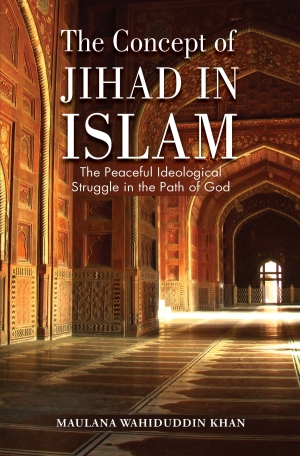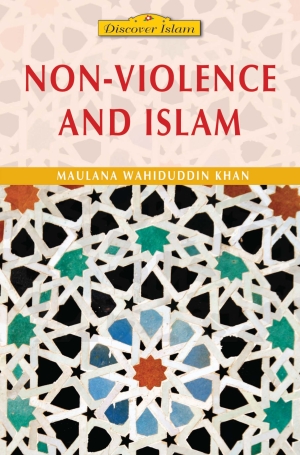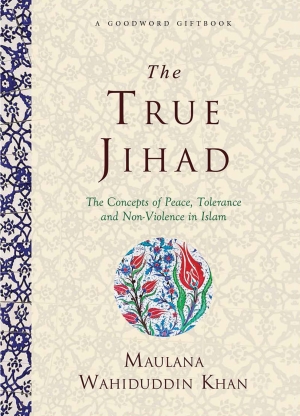The political interpretation of Islam has Islamized violence. Muslims influenced by this political interpretation resort to violence, wrongly taking legitimacy from the political ideology. However, certain Muslims have misinterpreted Islamic sources to legitimize a political ideology that leads to violence being perpetrated wrongly in the name of Islam. This political interpretation of Islam radicalizes Muslims, especially the youth-led, to the perpetuation of violence. Maulana Wahiduddin Khan, after conducting a detailed analysis of the ideology, concluded that this political interpretation of Islam has no basis in Islamic Scriptures—Quran and Sunnah. It is a case of political extremism, termed ghulu in Islam.
Islam teaches us not to be extremists in our religion: “Commit no excesses in your religion.” (4:171) The teachings of Islam are a subject of self-following, while the political interpretation of Islam has misinterpreted them into a subject of implementation on others by force. Certain Muslims have adopted the culture of violence wrongly in the name of Islam. Showing that the political interpretation is an error in the interpretation of Islam, Maulana Wahiduddin Khan placed the concepts of Islam in their proper perspective. Islam is a religion of peace. We must differentiate between Islam as given in its sources and the Muslim practices. Maulana’s material re-engineers the minds of extremists on peaceful lines. Then they leave violence on their own and start working towards peaceful activism.
Featured Articles
Featured Videos
FAQs
The responsibility for the present-day hatred and violence in the name of Islam does not lie with those Muslim youth who driven by acrimony carry out violent activities. Rather the responsibility for such action is to be borne by those so-called Islamic thinkers who, in the name of bringing about an “Islamic revolution”, gave such a way of thinking to Muslim youth whose result could be nothing but violence and hatred in the name of Islam.
The method of Islam is that of dawah or peaceful dissemination of Islamic teachings. The way of politics is contrary to dawah. While the basis of dawah is peace, politics is based on confrontation with others. Present-day Islamic thinkers gave a political interpretation to Islam, as a result of which the Islamic movement became a political movement. This culminated in all those unpleasant aspects—generally identified with politics—to be associated with Islam as well.
Those engaged in dawah consider others as potentially their friends. The case of politics is totally opposite to this, as those who are involved in politics look at others as their rivals or opponents. This is why dawah culture fosters mercy and compassion between people, while political activism leads to the spread of hatred. All kind of good finds its way in a society where people have mercy for each other, while the culture of hatred breeds animosity and violence. No virtue can ever be found alongside hatred.
Source: Spirit of Islam April 2019
The root cause of Muslim militancy is the political interpretation of Islam. According to this, it is Muslims’ bounden duty to establish the political system of Islam all over the world, even if it involves the use of force.
This wrong interpretation was a result of the distortion of Quranic teachings. For example, a verse says: “…So that men may conduct themselves with justice.” (57:25) This is an injunction to believers to adhere to justice. But this was changed to mean: ‘You have to implement justice in the world.’ This kind of misinterpretation has been done with several teachings of the Quran. The result was that Quranic teachings which are the subject of self-following have been turned into a subject of implementation on others by force.
When you take the above Quranic verse in this sense: ‘It is my duty to follow justice in my life’, it creates no problems at all. However, if you take the verse in this sense: ‘I have to enforce justice on others’, then it is bound to create a rivalry. Because there are already some people occupying the seat of power. Under the influence of this interpretation, you will make an attempt to unseat them in order to implement your so-called Islamic order. This would inevitably lead to conflict. If the first interpretation makes you see other people as your friends, the second interpretation causes you to consider others as your rivals.
Another example of this misinterpretation derives from a verse of the Quran, which says: In al-hukmu illa lillah. That is, “All power belongs to God alone.” (12:40) In this verse, hukm is used in the sense of the supernatural power of God as the Sustainer of the universe. However, some Muslim extremist thinkers misinterpreted it to mean political power. Furthermore, it is said that Muslims, as representatives of God, should establish God’s rule on earth. This assumption is wrong because it is based on a Quranic verse that has been taken out of context.
The real message of Islam was: ‘Be followers of Islam’, but because of the wrong interpretation it became: ‘Be soldiers of Islam.’ There is no Quranic verse that gives the directive to Muslims to establish Islamic rule.
Political rule is not an essential part of Islam, rather it is determined by circumstances. If Muslims are in the majority in society and are invested with authority, they can by the will of the people form political rule according to religious teachings. But if the majority in a society is not religious and does not want to be governed by religion, then Islam will accept the social will.
Source: Spirit of Islam August 2017
There is a saying that violence begins from the mind. This is true also of countering violence: countering Muslim militancy also begins from the mind. We find a model for this in how America dealt with the Communist ideology. America staunchly opposed communist Russia, but rather than drop a nuclear bomb on it, it devised and supported a literary campaign against the communist regime. Innumerable books were published in various languages and widely disseminated, which were critical of the philosophy of Communism. A great deal of careful planning had gone into challenging Communism at the ideological level. This strategy was successful, and in 1991 the USSR collapsed, after sixty-nine years of existence.
This is a good model for tackling the current so-called ‘Islamic’ terrorist movements. Terrorism in the name of Islam is based entirely on the misinterpretation of Islamic texts. One example of this misinterpretation derives from a verse of the Quran, which says: ‘All power belongs to God alone’ (12: 40). In this verse, power is used to denote the supernatural power of God. However, Muslim extremist thinkers have misinterpreted it to mean political power. Furthermore, these extremist thinkers claim that Muslims, as representatives of God, should establish God’s rule on earth. This assumption is wrong because it is based on a Quranic verse taken out of context.
Another verse in the Quran says: (5:8) ‘Follow the principle of justice [in your life]’. Misinterpretation of this verse has given it the transitive sense, instead of the original intransitive sense used in the Quran. The verb used above does not have any direct object of action, but the wrong interpretation has taken the object of action as the outside world. Thus, the verse is being taken to mean that justice should be imposed on people by force. This misinterpretation has politicised the concept of justice, although such a notion cannot be inferred from the text.
Any interpretation of the above kind is false. And this falsehood must be made manifest so that people understand with certainty that the present militancy has no sanction in Islam, and so that the extremists abandon their violence on realising that their actions are completely unIslamic. The terrorist phenomenon is based on misinterpretation of the scriptures. It can be eradicated only by universally publicising the right interpretation of Islamic texts.
In a speech on July 19, 2015, British Prime Minister David Cameron, expressing his anxiety about youngsters traveling to Iraq and Syria to join the so-called ‘Islamic State of Iraq and the Levant’ (ISIL), said,
‘We must de-glamorise the extremist cause, especially ISIL. This isn’t a pioneering movement—it is vicious, brutal, and fundamentally abhorrent.’
It is true that present Muslim extremism is the result of the glamorisation of the self-styled concept of global Khilafat or Caliphate. The solution lies in de-glamorising this false ideology developed by extremists through a misinterpretation of Islamic sources. De-glamorisation of the Khilafat can be achieved only by de-Islamising this concept of the Khilafat based on a political interpretation of Islam. And political Islam has no basis in Islamic scriptures.
The UN has rightly adopted this dictum: ‘Since wars begin in the minds of men, it is in the minds of men that the defences of peace must be constructed.’ To eradicate terrorism, we shall have to re-engineer the minds of terrorists along peaceful lines. No other method will be of any avail.
Source: Spirit of Islam November 2015










